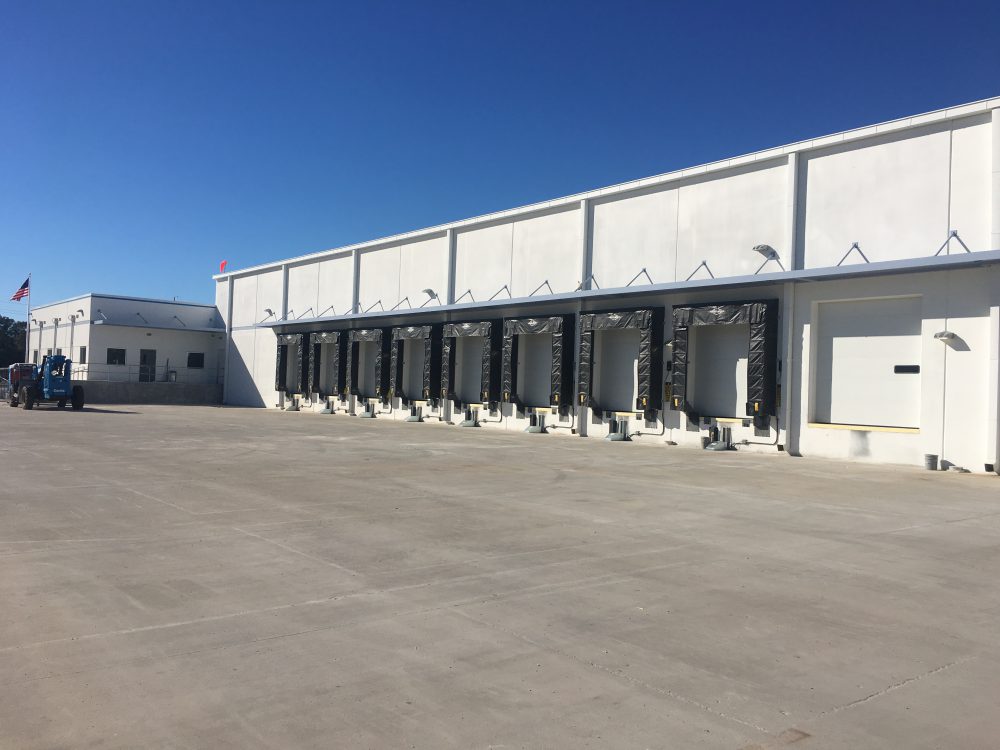At Stellar, we construct a lot of cold storage facilities and distribution centers. In fact, over the years we’ve designed and built more than 10 million square feet of public refrigerated warehouse space.
My point? We notice patterns in consumer demand, common challenges and external factors that influence the market as a whole.
Here are six of the top things affecting the cold storage construction industry right now.
1. More regional distribution centers
Online shopping has allowed smaller brands to offer their products to new and wider markets. This has led to a growth in redistribution services, which repalletize and redirect products so they can be delivered to customers in a variety of geographical markets more quickly.
At the same time, customers still expect a fresh product, even if its coming from a manufacturer across the country. Therefore, cold storage warehouses have to be more efficient than ever to move perishable product quickly while also meeting today’s expectations of speedy delivery.
This has led to more small, regionally located distribution centers to help decrease delivery time and increase shelf life. To do this, we’re seeing many companies rent space in an existing, ideally located building and retrofit it to create a cold storage environment.
2. More employee amenities to attract workers
The robust economy has led to more job openings than people looking for work. This labor shortage has had a direct impact on the way cold storage facilities are being designed. Today, owners are placing a greater emphasis on human support services as a perk to draw more employees to work in their facilities.
A cold storage warehouse is a harsh environment to work in, so to attract workers, these facilities are asking Stellar to design better break rooms with recreational activities like ping-pong tables and video games. They’re also investing in WiFi access and cable TV as well as offering hot meals to boost employee retention.
A shortage of truck drivers is also causing a similar trend: Companies are investing in enhanced truck driver facilities and lounges.
3. Acquisitions
Major acquisitions are reshaping the cold storage industry. As a handful of companies buy up smaller family-owned warehouses, we’re seeing fewer players in the market but larger facilities overall.
This climate is also driving improvements and consistency in engineering standards within cold storage facilities. These larger companies have more to lose and have greater financial resources, so ongoing maintenance is a higher priority. Overall standards and offerings are becoming more uniform and robust as this smaller pool of owners seeks to streamline and standardize operations.
4. Technology
The continued growth and development of computer technology is an inevitable influence on every industry, and cold storage construction is no exception. Web-based platforms and cloud computing is allowing design-build firms to share data more easily and execute designs more accurately. Everything from project management to the bidding process has been digitized, and we’re going to continue seeing the impact of computer technology as it advances.
Plus, the evolution of design technology tools allows firms like Stellar to execute projects more efficiently and more accurately:
- With virtual reality and 3D modeling, owners can now “walk through” buildings during the design phase.
- Laser scanning enables us to understand exactly what’s in an existing space to a high degree of accuracy by using millions of dimensioned points to measure a particular environment.
- Point layout software connects a point in a 3D model to a physical location in the real world, making executing construction projects more accurate than ever before.
Learn more about these and other cutting-edge design tools in our free downloadable guide.
5. Potential tariffs on steel
The threat of steel tariffs would have a major impact on design-builders and cold storage construction overall. Steel is foundational to these projects: It is used in the building shell, HVAC and refrigeration ductwork, compressors, insulated metal panels and basically anything metal throughout the facility. Tariffs could potentially cause an increase in cost and a decrease in supply, which could result in construction delays and increased project costs.
6. Packaged refrigeration
More and more owners are utilizing packaged refrigeration to cool their facilities. A packaged refrigeration system consists of the same components found in a traditional field-built system, however the components are mounted on a steel base and assembled off site in a controlled environment.
These systems come with a variety of benefits, including:
- Improve safety
- Lower cost
- Reduce overall schedule
- Improve quality
There are a different types of systems to choose from, but overall we’re seeing more facilities shift to packaged refrigeration. This trend is especially being driven by the movement toward natural refrigerants and the phasing out of ozone-depleting substances like R22.
Have questions about cold storage design and construction? Let’s chat. Email me at foodforthought@stellar.net or give me a call at 904-260-2900 (or toll free at 800-488-2900).



